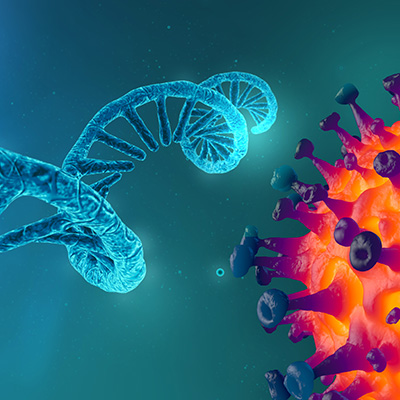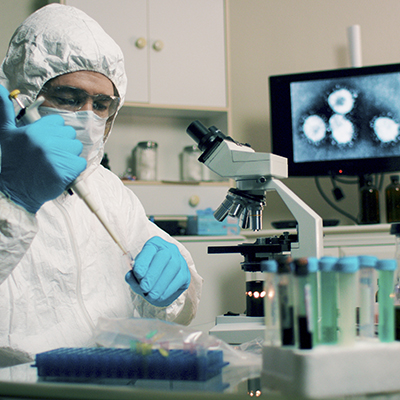December 14, 2020 -- The current coronavirus pandemic has set back progress in research and development (R&D) on neglected diseases and other long-standing global health challenges by disrupting ongoing research and redirecting resources to COVID-19 work, according to a new report released on December 11 by the nonprofit Global Health Technologies Coalition (GHTC).
The report, titled "Pain Points and Potential: How COVID-19 is Reshaping Global Health R&D," is based on 22 interviews with researchers and thought leaders in the field of global health R&D. It explores how the COVID-19 pandemic is affecting work on vaccines, treatments, and other tools for neglected diseases and conditions, taking into account both the pandemic's immediate implications and its long-term trends and challenges.
"A lot of veterans of global health R&D are confronting a confounding situation of a pandemic that has generated new appreciation for the value of their work while at the same time potentially causing long-term harm to the field," said Jamie Bay Nishi, director of the GHTC, in a statement. "Global health R&D has always subsisted on thin budgets and a tight-knit coalition of infectious disease experts -- and both of these, funding and talent, are being redirected to COVID-19, which is putting many important projects in a precarious position."
The report is addressed to governments and other stakeholders who are making the policy and budget decisions that will affect future research and development on neglected diseases and conditions which continue to sicken and kill millions of people worldwide even as the world's attention and resources remain focused on COVID-19. The choices of these policymakers will determine how the global health sector emerges from the COVID-19 crisis, according to the report.
The first section of the report summarizes the immediate disruptions the pandemic has caused to lab operations, supply chains, clinical trials, and funding allocations, and documents how research and development on neglected diseases has been negatively affected by vulnerable funding lines, redirection of expertise to COVID-19 research, and dependence on international collaborations that have been disrupted by travel restrictions.
The second section of the report identifies ecosystem trends likely to persist beyond the crisis stage of COVID-19 and reshape the global health sector. This section lays out two possible future scenarios, one pessimistic and one optimistic.
Under the pessimistic scenario, COVID-19 and the threat of future pandemics eclipse perennial global health challenges, distracting wealthy countries, donors, and the international community toward what are perceived to be more severe, near-term threats. The negative trends pointing toward the pessimistic scenario include the securitization of global health, eroding public trust in science, and diminishing U.S. global leadership.
In contrast, under the optimistic scenario, progress against COVID-19 demonstrates the scientific potential for tackling disease and confirms that progress is best achieved through global coordination and collaboration, strong investments, and smart policy, and this success in turn inspires the same aggressive approach against other, perennial global health challenges. The positive trends pointing toward the optimistic scenario include advances in research methodologies, technologies, and collaborative approaches, and renewed political will for research investments.
However, the authors cautioned that bringing about the optimistic scenario will require hard work and delicate coalition building.
"The critical role falls to policymakers to identify and restore vital global health initiatives that have been harmed by the pandemic while capitalizing on opportunities revealed by COVID-19 R&D to accelerate work on a number of diseases," Nishi said. "Their decisions will determine whether the legacy of COVID-19 is a tragic setback for the broader fight against infectious diseases or a new awareness of the incredible value of investing in global health innovations."
GHTC, which is funded by the Bill & Melinda Gates Foundation and its members, is a coalition of more than 25 nonprofit organizations, academic institutions, and businesses advancing policies to accelerate the creation of new drugs, vaccines, diagnostics, and other tools related to research and development for global health.
Do you have a unique perspective on your research related to infectious disease research? Contact the editor today to learn more.
Copyright © 2020 scienceboard.net











